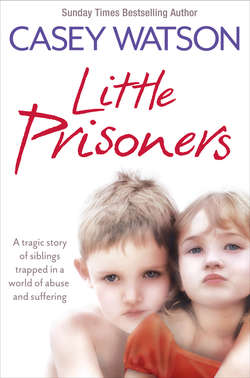Читать книгу Little Prisoners: A tragic story of siblings trapped in a world of abuse and suffering - Casey Watson, Casey Watson - Страница 11
Chapter 6
ОглавлениеThe type of fostering Mike and I had originally been trained to do used a system of points and levels to modify behaviour. A child would start on a very low level and earn points every day for completing various tasks, with which they could then buy a range of privileges, such as extra TV time, or a later bedtime. As they progressed through the programme, the tasks would get harder, but, at the same time, the rewards would get bigger too.
This kind of behaviour modification programme was a relatively new development in fostering, and was intended for use with a specific type of child, and it had been made clear that, in the case of the children we had now, it wouldn’t be appropriate. Not only would Olivia be unlikely to understand it, but as the children were also to be with us only as an interim measure, there was no point in starting it, even if they could make sense of it – and Ashton perhaps could – as they’d be unable to do more than scratch the surface.
But, having spoken to John Fulshaw a few days after the various incidents we’d witnessed, I decided to implement one anyway. And I did so after hearing yet another bomb-shell. Having brought John up to speed on the various toileting issues, not to mention expressing my concern about all their sexualised behaviours, I had asked – almost as an afterthought, really – how things were going with the court case.
‘Ah,’ said John. ‘Actually, I was getting to that, Casey. I’ve not long put the phone down to Anna, as it happens. It seems that in the light of your emails about what the children have been doing, social services are requesting a further adjournment so that all this new stuff can be added to their final report.’
This seemed pretty sensible, from social services’ point of view. What we’d witnessed, both in terms of physical neglect and the strong possibility that all the kids had been sexually abused, could only strengthen the case for them not being returned. I thought about Olivia’s comments about her ‘gwandad’ and shuddered. But the other implication, and the thing John was obviously braced to tell me, was that an adjournment meant a delay, which meant only one thing.
‘So the kids will need to stay with us for even longer than anticipated, then?’
‘I’m afraid so,’ he admitted. ‘In fact, the other thing I have to tell you is that Anna has already been on to the Education Department to see about moving the kids to a primary school close to you for the new term. I believe she’s also asked for a full report to be sent on from their old school which, once she’s got it, she plans to bring over to discuss with you.’
‘Great,’ I said. Not so much about having the kids for longer – Mike and I had already crossed that bridge, and we were fine with it. But because, logistically, this would cause a real headache. ‘So it’s going to be a bloody rush job, then. Brilliant. There’s only a fortnight – slightly less – before the start of the autumn term, and I’m going to have a whole set of uniforms, PE kit and so on to go and buy. And try to socialise them too – John, you really have no idea how bad things are. They don’t even know how to eat using cutlery! Or dress themselves, or wash themselves – or anything, basically. How the hell am I going to have them ready for a completely new school in two weeks?’
I also thought, but didn’t mention, that it wasn’t just about the kids. It wasn’t just a case of the kids adjusting to a new school, it was how the school would cope with having them!
‘I know,’ John soothed. ‘I do appreciate how tough it’s going to be. Just stick to the basics – concentrate on the simple stuff. And it might be worth popping down to speak to the school too? You know – you and Mike, just to prepare them.’
